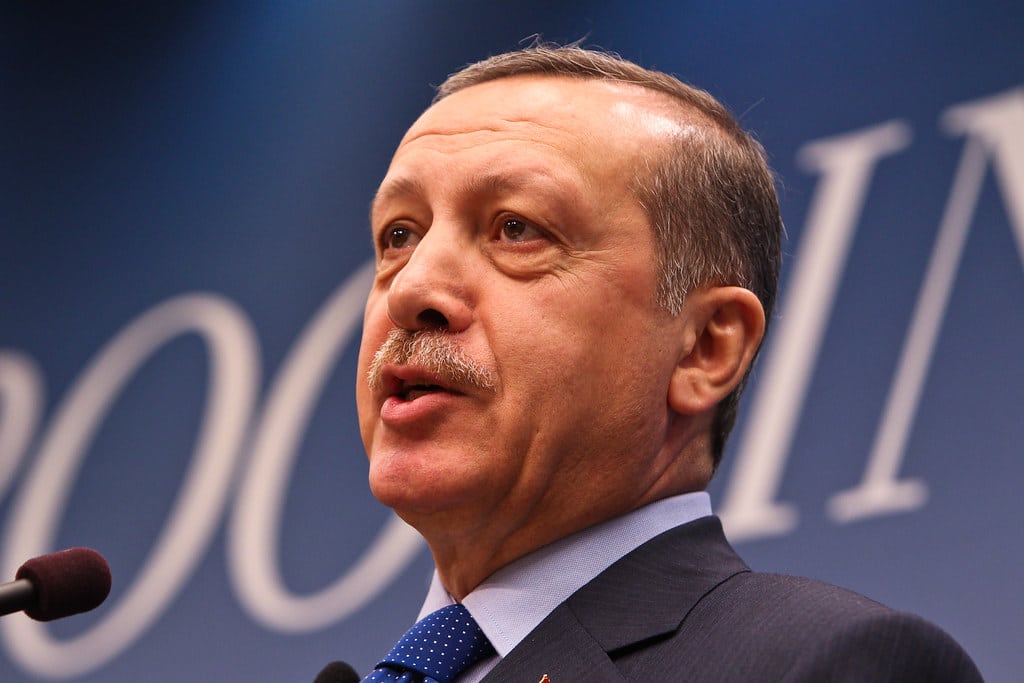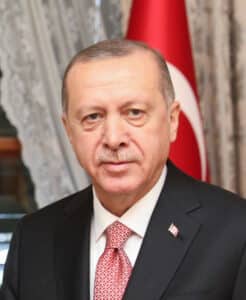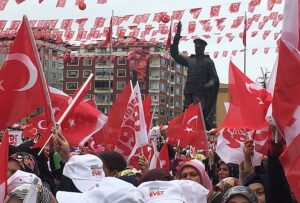Photo: President Recep Tayyip Erdoğan – Flickr
Turkish President Recep Tayyip Erdoğan visited Egyptian President Abdel Fattah El Sisi in Cairo on the 14th of February. The visit marks a new era of cooperation between the two countries, which have been tense for years since the ousting of Egyptian President Mohammed Morsi, an ally of Türkiye, in 2013. Erdoğan and El Sisi held bilateral talks focusing not only on relations between their countries but also on regional challenges, particularly the situation in Gaza. El Sisi also plans to visit Türkiye for the first time since taking office in 2014. Both leaders have signed an agreement to set up a joint organisation, the Strategic Co-operation Council, to strengthen bilateral relations. They also want to increase trade between the two countries from $10 billion to $15 billion. The restoration of full diplomatic ties and the announcement of the two nations to work together indicate a crucial shift in the geopolitics of the region.
Historical ties between Egypt and Türkiye
Tensions rose between Ankara and Cairo after the military-backed ousting of President Mohammed Morsi in 2013. Morsi, an ally of Türkiye from the Muslim Brotherhood, was ousted by El Sisi, the then Egyptian defence minister, which was condemned by Türkiye’s ruling Justice and Development Party (AKP). The subsequent suppression of the Muslim Brotherhood by the Egyptian government further strained relations between the two nations, leading to a period of diplomatic estrangement.
In the years that followed, Türkiye and Egypt stood opposite each other in several regional conflicts, including the civil war in Syria, the crisis in Libya and a dispute over gas production and maritime borders in the Mediterranean Sea. Competing geopolitical interests and diverging foreign policy objectives exacerbated tensions and complicated efforts to reconcile differences.
Ties between the two leaders have been improving behind the scenes since 2021. This improvement was first observed in 2022, when Erdoğan and El Sisi shook hands during the World Cup in Qatar. The Egyptian presidency called this brief meeting a new beginning in relations with Türkiye.
Call for ceasefire in Gaza
At a joint press conference, Erdoğan and El Sisi stressed their solidarity with the people of Gaza and underlined the need for cooperation to achieve a ceasefire. President El Sisi spoke of the shared commitment to achieving calm in the West Bank to facilitate renewed Israeli-Palestinian peace talks, that would lead to the creation of an independent Palestinian state. Erdoğan said: “We will continue to cooperate and stand in solidarity with our Egyptian brothers to end the bloodshed in Gaza.” He also called on Israeli President Benjamin Netanyahu not to carry out a ground invasion in Rafah, where 1.3 million Palestinians are currently hiding, most of whom have been displaced from other towns in Gaza.
Although the two regional powers have often been at odds, their interests in relation to the Gaza conflict are aligned. While the international community struggles with the complexity of the Israeli-Palestinian conflict, Erdoğan and El Sisi’s call for a ceasefire in Gaza reflects a joint effort to bring peace and stability to the region. This rapprochement between Türkiye and Egypt may also indicate a growing dissatisfaction with the role of the U.S. in the region. Erdoğan and El Sisi have both voiced their criticism of the U.S. response to the situation in Gaza, particularly Erdoğan who has called for increasing pressure on the United States to stop Israel’s offensive. This cooperation can therefore be seen, among other things, as a sign of reduced U.S. influence in the Middle East and North Africa (MENA) region.
Shift in geopolitics
Moreover, the two countries have found each other in a shared vision of autocratic governance, economics and regional politics. This may further indicate the growing influence of so-called “middle powers” in the MENA region, meaning that regional actors such as Türkiye and Egypt are strengthening their influence in the MENA region and play a greater role in shaping geopolitical dynamics.
Written by: Diandra Monhemius



